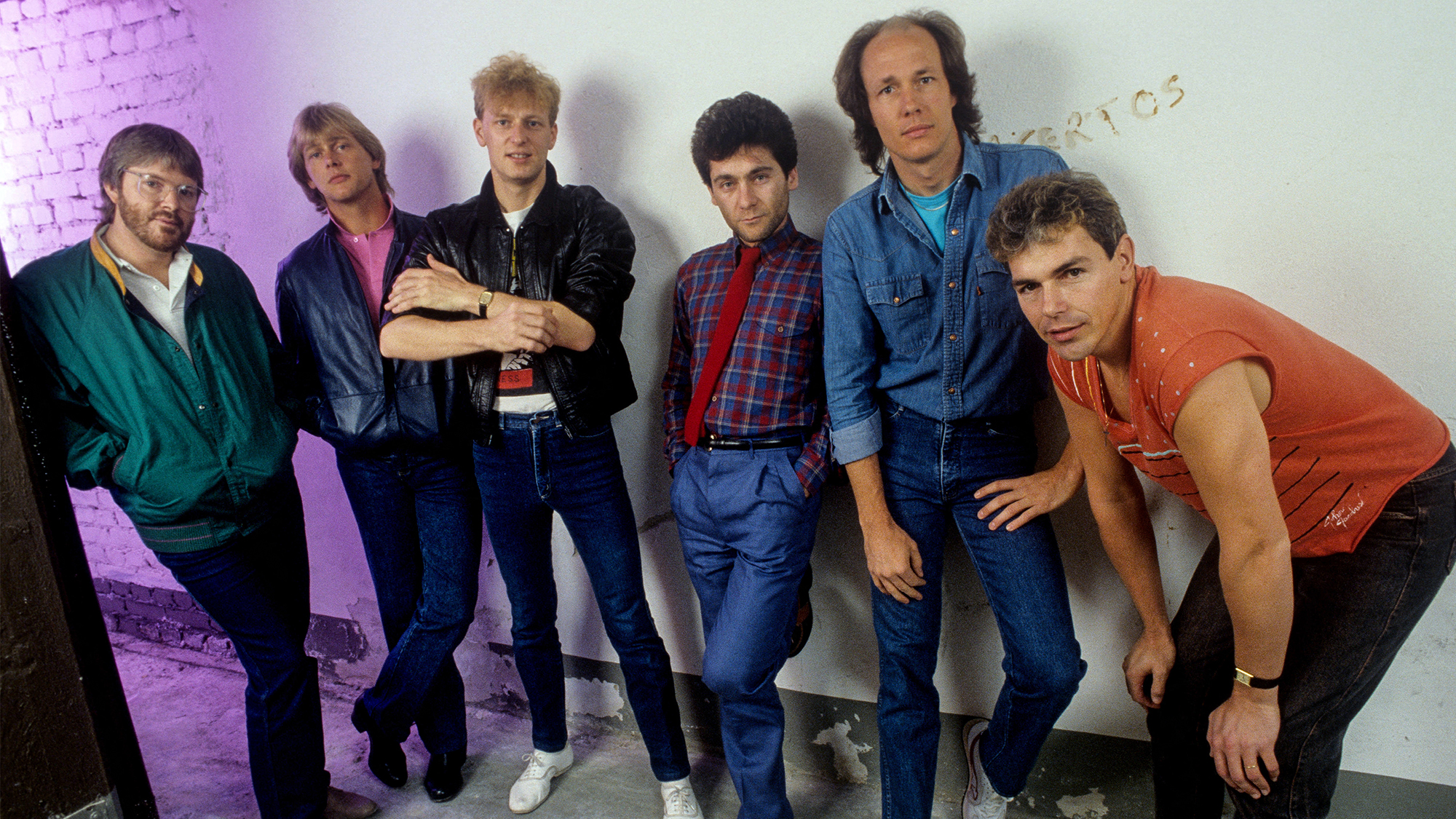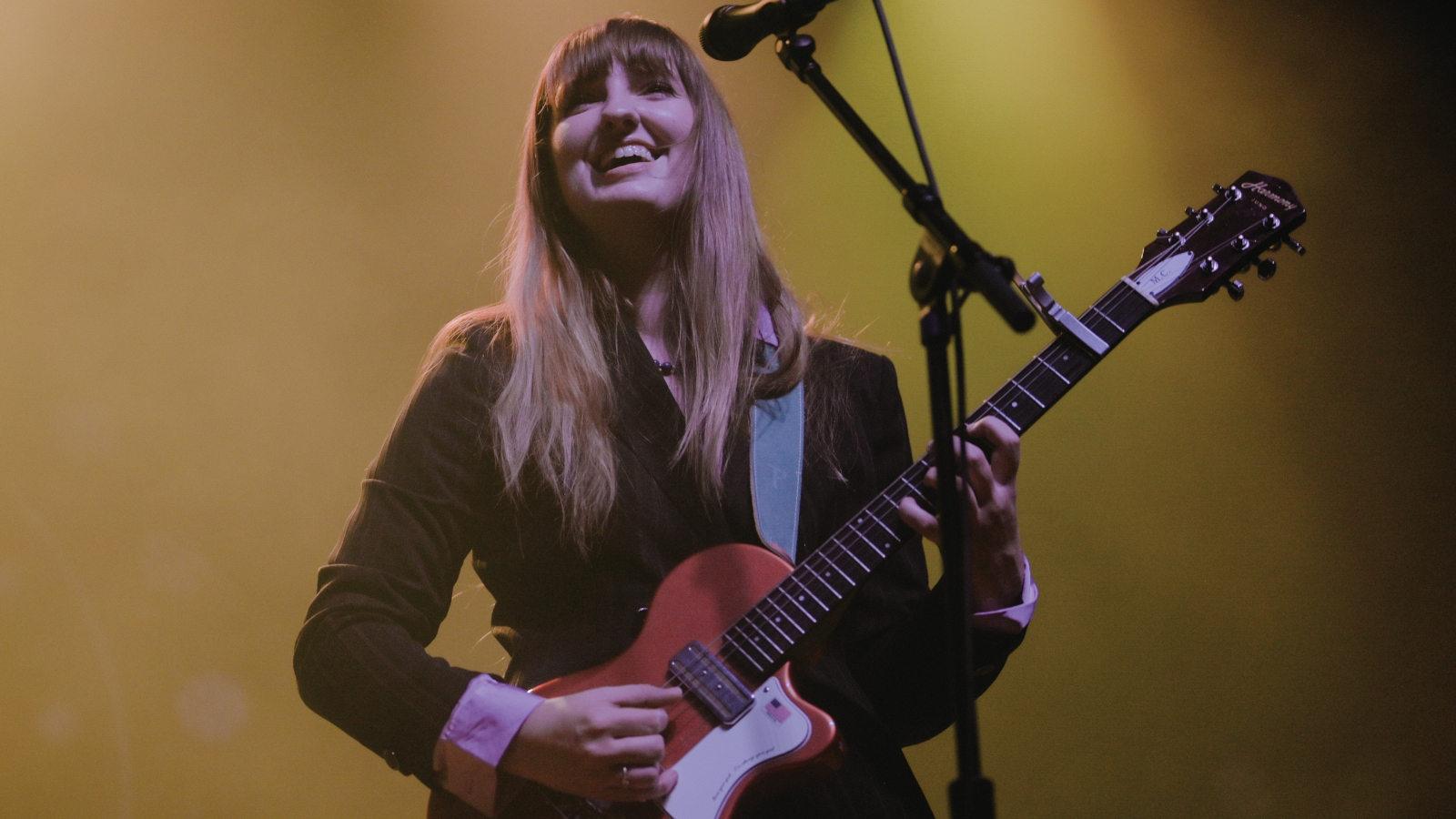
Madison Cunningham aced her way through the whole “sophomore slump” thing in fine form with her second album, 2019’s Who Are You Now. That sublime set of musically adventurous and startlingly personal songs enchanted music fans and critics alike, and went on to earn the iconoclastic singer-guitarist a Grammy nomination for Best Americana Album.
Music is therapy for the 25-year-old California native, and as suggested by the title of her sumptuous new album, Revealer (Verve Forecast), songwriting is her way of making sense of feelings.
“I actually had the title right at the beginning,” she explains, “so in many ways it was something of a guiding principle for me. As the songs came into form, the word sort of magnified itself as a through-line. I began to think of a revealer as being kind of a figure. It’s the personality of grief, or maybe it illustrates how grief eliminates all the things that are bubbling under the surface.”
I began to think of a revealer as being kind of a figure. It’s the personality of grief
Madison Cunningham
She pauses as she runs that thought around in her head, and chuckles. “I just loved the word,” she says. “I thought it was very beautiful.”
Much of the grief that informed Cunningham’s new music stemmed from the mid-2020 death of her beloved grandmother, and she processes her heartbreak amid soothing strings that wrap their way around her velvety voice on the stirring ballad “Life According to Raechel.” Her anguish takes on a more steely and defiant form on “Hospital,” a gritty guitar riff that lodges inside your head and stays there.
Cunningham has a crafty way of describing sensations without editorializing them, but they have a cumulative power, like on the bleary folk-flavored gem “All I’ve Ever Known,” where she summons a grab bag of images and life experiences over a bobbling, hypnotic guitar figure that takes listeners through a series of looking glasses.
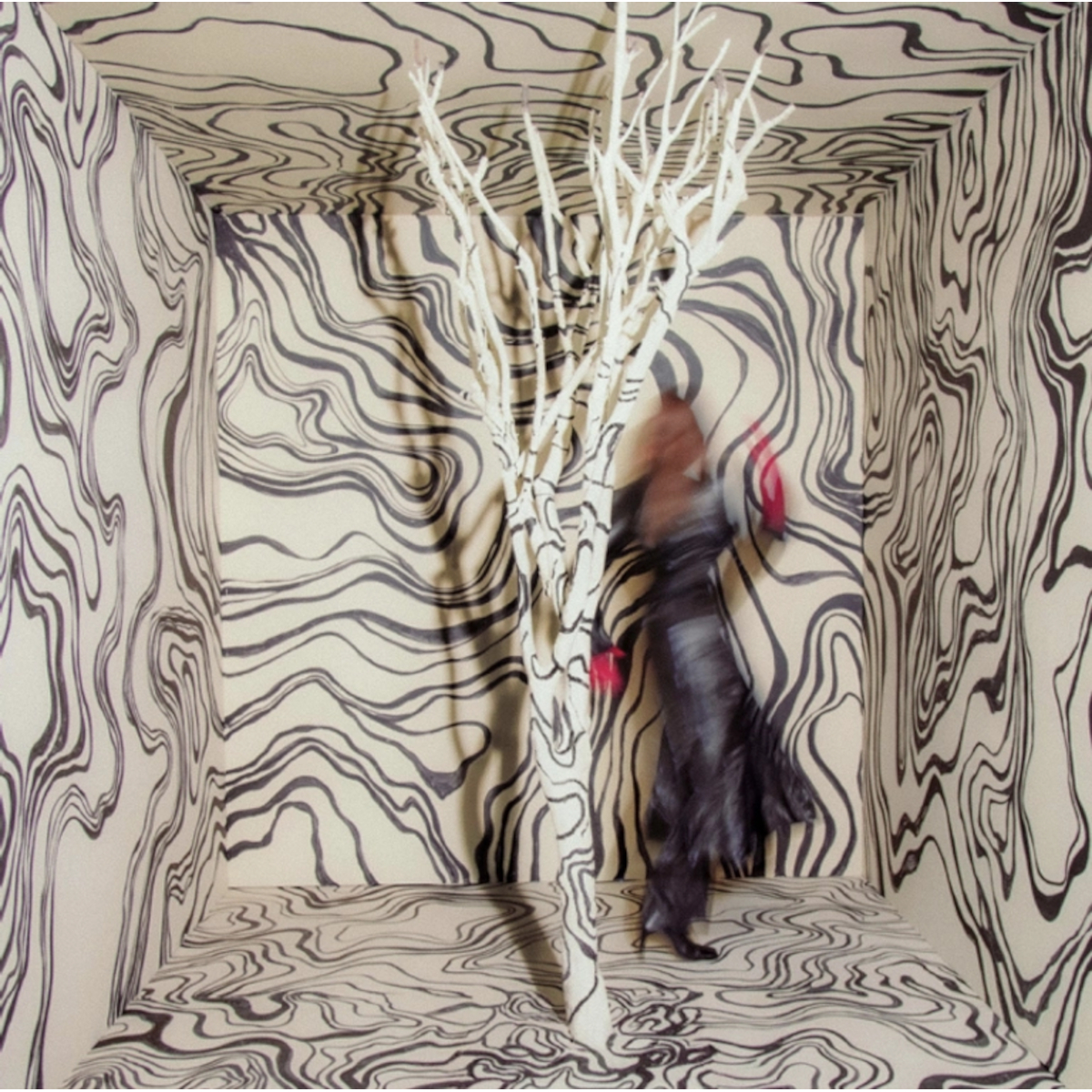
Her love of the late-period Beatles graces the shifting time signatures of “Your Hate Could Power a Train,” and on “In From Japan,” she artfully marries musical theater with Jeff Lynne-style rock orchestration.
All the latest guitar news, interviews, lessons, reviews, deals and more, direct to your inbox!
“On my previous record, I tried to make the statement ‘I am a guitar player,’ and I think that point was made,” Cunningham notes. “I didn’t veer from that idea too much on this album, but I wanted it to be a spectrum of things.
“I wanted the songwriting to shine through. Like with ‘Life According to Raechel,’ I never pictured it with guitar – I always heard it with strings. It was always about the song and the story I wanted to tell. It’s one of my favorite songs on the record. I’m so proud of it.”
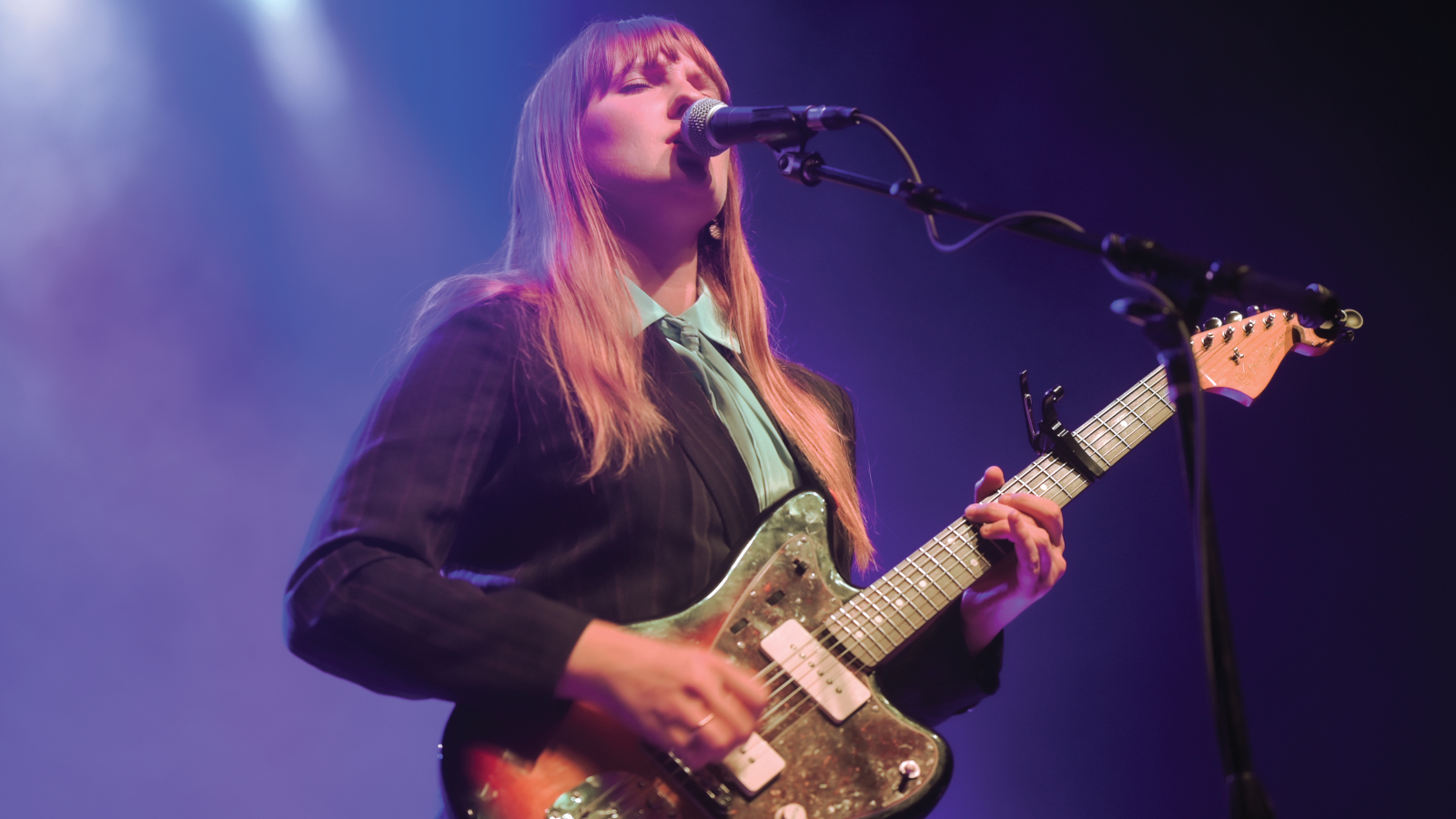
With its highly intimate, yet relatable observations bathed in sophisticated, jazz-tinged folk rock, much of the music on Revealer conjures up another era. At the mention of Laurel Canyon legends Joni Mitchell and Crosby, Stills & Nash, Cunningham lights up. “Oh, definitely!” she says, with a laugh.
I’m not shy about my influences. I can’t hide them
Madison Cunningham
“I would consider myself to be a student of those writers. I think they tapped into something that was just so prolific and profound. They didn’t hide any of their emotions that went directly onto the page. I think they’re very unapologetic about that, and I absolutely model my writing and career off of that.”
Still, Cunningham points out that she’s not about to be thought of as anybody’s idea of a carbon copy. “I’ve always just wanted to fight for my own voice,” she says. “I’ve gone through so many different iterations of my own sound to the point where I can say, ‘Oh, yeah, I was highly influenced by so-and-so during that period.’
“I’m not shy about my influences. I can’t hide them. But really, I just try to express my own identity in everything.”
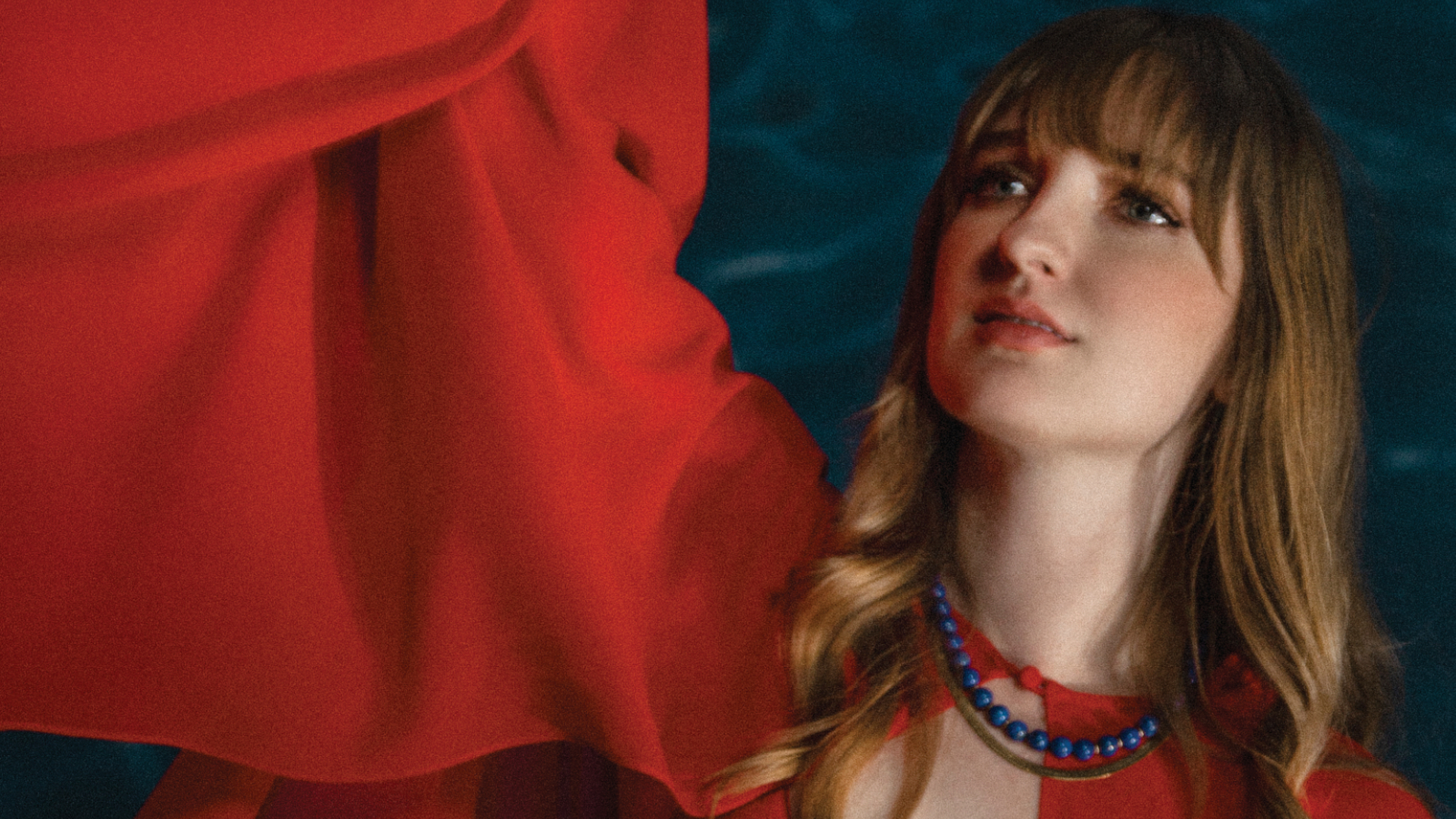
I read a recent interview with you in which you said you thought being called a female guitar player was “dumb.” I agree. It’s pretty silly people still talk this way, isn’t it?
It is, but I should clarify my opinion. Gender has always been a non-issue, but culture has made it an issue. It’s not that sexism is eradicated; that’s still very much alive, and I don’t know how long we’re going to be working through that.
So in that sense, it’s not gone, and the conversation is just as important as it ever was. But in my opinion, it’s like, I get so tired of talking about it. I’m like, “Come on, guys. Let’s do the work.”
If you love guitar, play guitar and be the best you can be. It doesn’t matter what your DNA is. I guess in that sense, that conversation feels outdated, but it’s still very relevant because there are still people who give me a hard time about it.
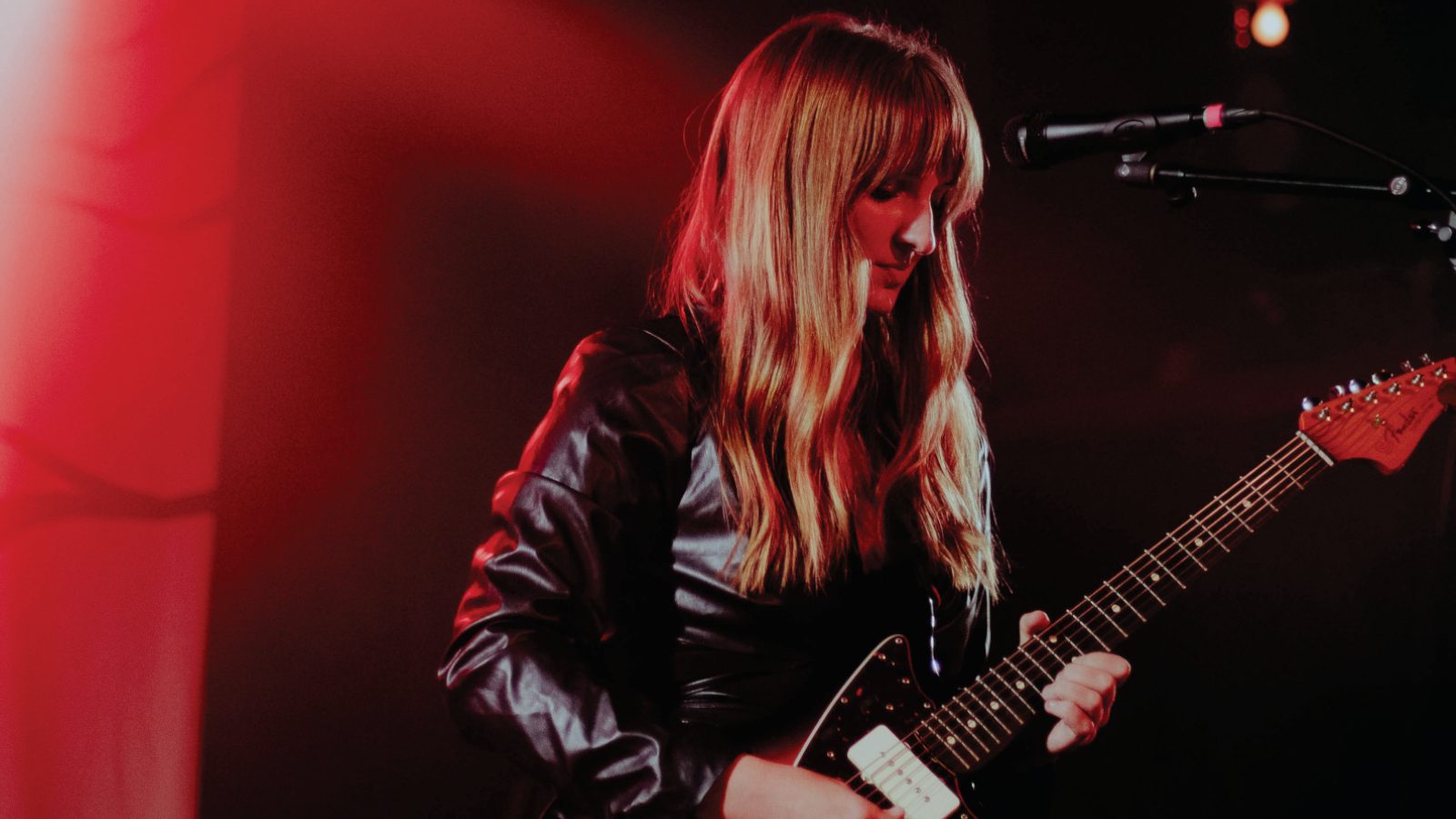
You started out playing Christian music. As you might know, a lot of non-Christians don’t listen to Christian music. They think it’s not meant for them. What are they missing?
I have to be careful, but I would say… not much. I’m very much on the outside of Christian music now, so I feel out of date. I grew up with it, but I left it when I was 17. I don’t know. From what I gather, there aren’t a lot of artists that exist in that world like there were some time ago.
Now it’s very much spiritual songs and worship-focus music, which have very specific purposes. It’s for people who hold that faith. Excluded from all of that is the beautiful gospel music that came out of the church.
Aretha Franklin came out of the church. That’s different to me. That’s in a whole different echelon, with its own mission. But as for right now, like I said, I’m out of touch with that industry, although I can’t say that there are songs being written for just the general person to grab onto.
Was there a gateway album that changed things for you? You’ve talked about Abbey Road having a dramatic impact on you. Was that a big one?
It was, because my ears were tuned to this perfect sort of alternative Christian style of music. The Beatles… this is going to sound funny: Their records were so offensive to me at first because there were so many moments where the guitar was out of tune. [laughs]
I didn’t understand the importance of sincerity and performance over perfection, and how those two things sometimes are mutually exclusive. My ears had to mature, and the Beatles taught me so profoundly about what it means to actually perform and innovate, and how sound is often imperfect because perfection and progress can’t happen at the same time. But that being said, the Beatles are perfect in my opinion.
At the time, my ears weren’t being challenged, and they were the first band that did that for me. It’s funny: A lot of my favorite music – and I mean the stuff that absolutely transformed me as an artist – I didn’t really like it at first. I had to sit with it. It’s fascinating how that works.
Any other examples other than the Beatles?
Oh yeah. I mean, it’s sad and I’m almost embarrassed to admit it, but when I first heard Radiohead, I was like, “Eh, I don’t hear songs.” Who on earth did I think I was to say that? [laughs]
But that’s just how I felt. And then something hit me, and I was like, “This is the best music I’ve ever heard!” The same can be said about Jeff Buckley and Björk and Fiona Apple. Now they’re my favorite people. It just took me a minute.
You started playing the guitar quite young.
Yeah, I was seven years old.
From the ages of 17 to 22, that’s when I practiced the most in my life
Madison Cunningham
Was there a time when you decided that you wanted to get really serious about playing? Did you sit down and put in the 10,000 hours?
Oh yeah. I started taking electric guitar seriously when I was probably 16. I was in a high school band, and I had played acoustic guitar, but I decided to make the switch to electric to match what was happening sonically in this band.
It was frustrating, though, because the electric guitar required a different touch. I became very annoyed at how I sounded. It was like I had to learn guitar all over again.
From the ages of 17 to 22, that’s when I practiced the most in my life, especially when I turned 21, because I got asked to do a bunch of gigs in L.A. I had started duetting with [Nickel Creek and Punch Brothers mandolinist] Chris Thile, and I couldn’t afford to be anything but excellent on guitar. That was my goal.
During that period, what kinds of things did you practice?
It would depend. For a while, I was hanging with some friends in Orange County, and we would learn a song a week. One week it was something by Jimi Hendrix, and the next it would be John Scofield. The next it would be Led Zeppelin. We were just going through the coolest guitar players and playing them as best we could.
I did a lot of listening. I listened to B.B. King…a lot of people. And I was transcribing songs. At the same time, I wrote songs and I would imagine what I wanted to hear myself play. Then I’d practice and practice, and I’d get to where I loved it.
You use a lot of open tunings. Where’d that come from?
I was transcribing songs. At the same time, I wrote songs and I would imagine what I wanted to hear myself play
Madison Cunningham
A family friend named Danny Donnelly showed me open tunings when I was probably 12. Then when I was older and started listening to Joni Mitchell, I understood that she had been playing in open tunings for years. That’s when I was like, “Oh… got it. That’s how you do it.” I started writing songs in open tunings at that age, when I was 16.
Was that a real watershed moment for your songwriting? Did open tunings facilitate your songwriting?
One-hundred percent. I mean, it was all a progression, and eventually all of my electric guitars got tuned down to C standard. I liked how they sounded. I still write songs in that sort of octave.
I think open tunings opened up different melodic pathways for me; they just made more sense, and I could find more voicings that way. I don’t really have a lot of theory in my background. I didn’t go to school for guitar or music. It’s all just self-taught and discovery. A lot of the time, I follow my ear and intuition.
You’re quite a good fingerstyle guitarist. Did you study other players?
A couple. Paul Simon, definitely. But the family friend I mentioned, Danny Donnelly, he was an incredible fingerpicker, and he’s still one of my favorite guitar players. There’s probably a few others, but Paul Simon was the big one.
You had a lot of time to work on this record during the pandemic. During that period, did you pick up the guitar more than usual?
I played a lot, but there were days when I didn’t have the appetite for it. I didn’t want to play; I just wanted to make meals and learn how to make pasta. [laughs] But yeah, I would say overall, the hours that I logged playing guitar were so much more than usual.
Let’s get into the album a bit. There’s a really cool, swirling guitar figure in “All I’ve Ever Known.” On the record, is that a loop?
Nope. It sounds like it’s a loop, but it’s just me playing the part over and over.
I should have figured. I saw you play it during the NPR Tiny Desk Concert you did recently. You use a lot of upstrokes for that part.
I do. It’s a lot of upstrokes and pull-offs. I’m pulling off the strings and using some of the open strings to get that sort of melodic pattern. It was hard to do for a minute. I got the guitar part first, and then the melody came later. I love playing something that has a rhythm flow underneath what I’m singing. It’s become a part of my instincts now.
“Hospital” has a flat-out awesome rock riff. Riffs are hard, aren’t they? You can labor over them, but the best ones come about because you’re noodling around and you have an “aha moment.”
Honestly, that’s true. There’s no math or calculation; it’s really just me figuring stuff out. With “Hospital,” it’s funny because I was trying not to have a riff in the song. I wanted it to be all about just the melody and the song, nothing more.
The riff just happened very naturally. I was playing and playing, and it just sort of slipped out. This happened a couple of times till finally I was like, “Okay, that’s a thing.” If you repeat it a couple of times, it’s a riff.
There’s no math or calculation; it’s really just me figuring stuff out
Madison Cunningham
The riff is almost classic-rock sounding. Tell me, what kind of rock music are you listening to?
Oh, well, like I said, Radiohead. I think they’re the coolest version of rock. Let’s see, what else? I really like Queens of the Stone Age.
Great grooves.
Absolutely. Everything they do is so deep. They’re such a great, creative rock band. I mean, I’ve always loved Led Zeppelin. Those are some of the coolest song structures and guitar-centric stuff. Who am I forgetting? There’s Wilco. I love Wilco! Oh, and Feist. I think she’s rock in her own way. I look up to her a lot.
“Your Hate Could Power a Train” sounds like several songs mashed together.
I was practicing something else, and I hit the wrong fret. I went, 'Whoa, that’s weird… but I kind of like it.'
Madison Cunningham
It does, but it was all one idea. I had this weird riff that happened by accident. I was practicing something else, and I hit the wrong fret. I went, “Whoa, that’s weird… but I kind of like it.” Then I went after the bridge, which has a very open, half-time feel.
After that, I filled in everything else. We wanted it to sound like we had chopped it up and put a bunch of different songs together. So you’re right, but the truth is, it all came together at once.
It’s got such a jazz feel to it. You don’t know what’s going to come at you next.
[laughs] Yeah, that’s cool. Well, it is a train, and it’s taking some fast turns.
Are Fender Jazzmasters still your go-to guitars?
Yeah. My main one is a Mexican Jazzmaster reissue, but I have a couple of backups. I don’t consider myself a Jazzmaster poster child, but I just love that guitar.
It speaks to me. Every environment that I bring it into, it feels like me. It’s like a very flattering jacket. You’re always going to wear that jacket, even if it’s too hot outside. [laughs]
What are your main guitar amps right now?
I’ve been traveling with two Fender Deluxes, and I use both of them at the same time so I can get a cool 3-D sound. It sounds really nice and big.
I don’t consider myself a Jazzmaster poster child, but I just love that guitar
Madison Cunningham
You seem to like some effects pedals. What are you using?
It’s all JHS at the moment. I have a custom pedal I made with them that’s going to come out soon. It’s called the Artificial Blonde. Even though I’m a real strawberry blonde, I kind of liked that name. It’s basically a warble kind of tremolo thing that I keep on for every single song. It’s got depth and speed, so you can change it around.
Other than that, I have a boost pedal that I use every once in a while. I have a tuner and a delay pedal that I use for short slap. I have been using a [HexeFX] Revolver pedal, which isn’t JHS. It gives me a cool glitchy sound. I think that’s about it.
I’m going to compliment you here. You’re unique. You have your influences, but you distill them in a way that makes you sound different. It’s in your songwriting, and it’s definitely there in your guitar playing.
Thank you! Like I said, I have my influences, but I really try to find my own voice in everything. Especially as a guitar player – there’s a lot of guitar playing that is just not exciting to me. And I also think that the lack of training in theory has allowed me to not care about rules that much.
I really, really try to not let myself be aware of any musical rules, so I don’t feel like I’m breaking them. I just want to keep the pathway as clear for me to create things that make me excited. That’s it. That’s all I care about.
For tour info, merch and more visit the Madison Cunningham website.

Joe is a freelance journalist who has, over the past few decades, interviewed hundreds of guitarists for Guitar World, Guitar Player, MusicRadar and Classic Rock. He is also a former editor of Guitar World, contributing writer for Guitar Aficionado and VP of A&R for Island Records. He’s an enthusiastic guitarist, but he’s nowhere near the likes of the people he interviews. Surprisingly, his skills are more suited to the drums. If you need a drummer for your Beatles tribute band, look him up.
